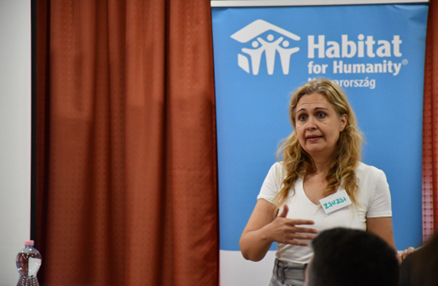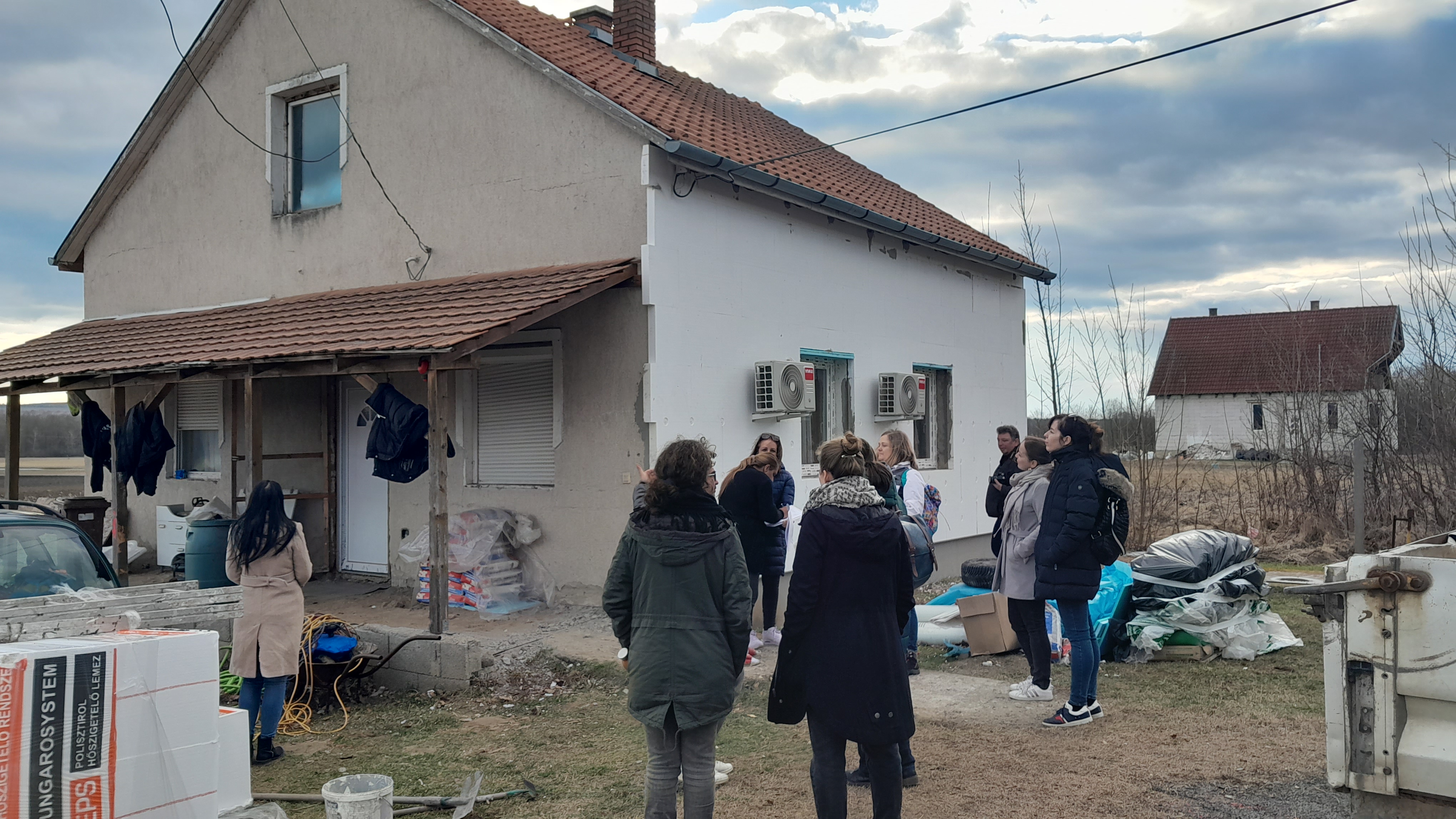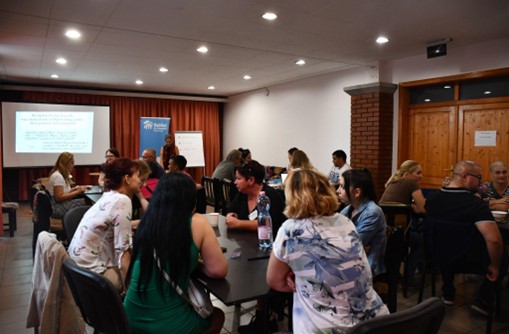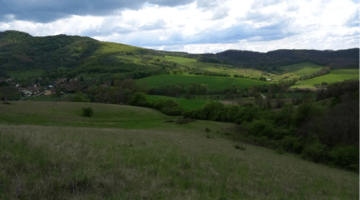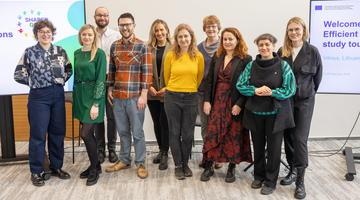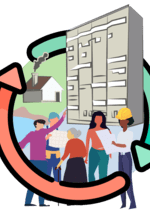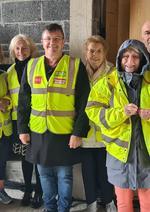Building capacity for home renovation in rural Hungary
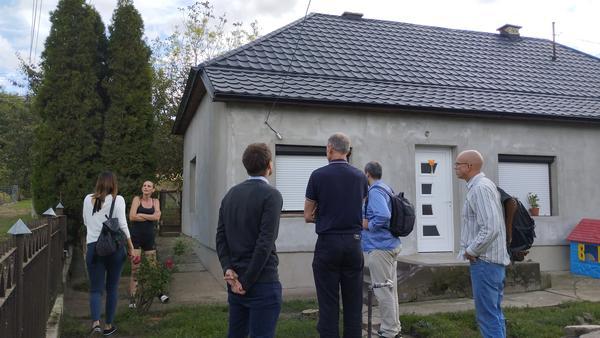
Nógrád County in Northern Hungary is made up mainly of small villages — many with fewer than 1,000 inhabitants — scattered across wooded hills and narrow valleys. The majority of homes are detached buildings, with around 80 percent built before 1980, heated by wood stoves. Energy poverty is a fact of daily life for many.
But the greatest obstacle to upgrading these homes isn’t just technical or financial, it’s structural. In this fragmented rural context, where distances between villages are wide and support services scarce, the real challenge is access: to guidance, to funding, and above all, to people you can trust.
“In Hungary over the last few years there have been some housing subsidy programmes, but they have not been socially targeted in any way,” explained Zsuzsanna Koritar, Policy Expert for Habitat for Humanity Hungary, the local SHARED GREEN DEAL partner, when speaking at an event organised by the project.
As she detailed, these programmes were designed with a different audience in mind.
“Generally, these programmes involve post-financing, sometimes loan facilities, and they are mainly available for higher income earners. Households experiencing energy poverty typically have no savings to cover up front costs and they are not eligible for loans because of their financial situation,” she said.
This gap between what’s offered and what’s actually usable for low-income rural households was the starting point for the ‘Knowledge Network’ established by Habitat for Humanity Hungary in Nógrád.
Fact box
A Knowledge Network is a collaborative structure that brings together diverse stakeholders—such as professionals, practitioners, and community members—to exchange information, share skills, and co-develop practical know-how.
Engagement of different groups, in different places
Even when subsidies are theoretically available, vulnerable households often face a second, more hidden hurdle: the bureaucracy itself. Many simply don’t know where to begin — let alone how to navigate complex application procedures, assess renovation options, or trust that the work they receive will be of good quality.
“The presence of financial resources doesn’t always guarantee access to them,” Zsuzsanna Koritar highlighted. “These households need other types of support — someone to help them through the labyrinth of bureaucracy, technical advice, and trusted contacts.”
That’s where the Knowledge Network came in. The aim was to bring together residents, professionals, NGOs, and public sector actors as equal participants in a new kind of capacity-building effort. But this inclusive ambition wasn’t easy to implement.
With villages spread out across the region and each community facing slightly different conditions, it took careful coordination to bring together a balanced combination of local builders, financial advisors, civil society voices, and public sector actors. Availability and travel logistics sometimes made this a moving target, but flexibility and persistence helped ensure that each gathering provided residents with access to trusted, relevant advice grounded in local realities.
Trust as the main conditionStill, the impact of that diversity, when it came together, was powerful. Through a mix of in-person meetings and dedicated “eco-tours” — real-life demonstrations of energy renovations in action — the network helped households connect not only to information, but to people they could trust. That included professionals, but just as importantly, it meant other locals who had already gone through the process.
One participant shared in interviews that the events gave them “real advice and real connections — people we can ask for help.” Another added, “We didn’t just learn how it works, we saw it.”
In Nógrád, trust was more than a nice-to-have — it was the foundation of the experiment’s success. Early on, it was recognised that fostering engagement meant meeting people where they were: physically, emotionally, and logistically. Meetings were held in locations as accessible as possible, food and transport were provided, and participants were initially offered small vouchers to compensate for time spent.
As the network progressed however, it became clear no one was showing up for a drink or a voucher, but because they were “getting access to trustworthy information, trustworthy contacts, [and] actual practical help regarding their home renovation,” as Zsuzsanna puts it.
The value of the network grew in other ways, too. Participants began calling one another between events to check on progress, exchange tips, and share experiences — a sign that trust and collaboration had taken root. Just as importantly, many participants expressed how motivating it was to share their own stories with others.
Looking aheadThe social experiment in Nógrád didn’t eliminate energy poverty — but it supported the community in taking the first steps dismantling the barriers that stop people from trying. In a region where many feel left behind, the experiment proved that support doesn’t have to be high-tech or expensive. What matters is community and human faces on what can otherwise feel like an overwhelming process.
By helping residents build confidence and connections — not just to financial support, but also to practical knowledge and reliable people — the Knowledge Network began spreading the capacity to act. It wasn’t about one-off advice or one perfect solution, but about creating the conditions where more people could see a path forward.
At the final gathering, many spoke about how meaningful it had been to share their own renovation stories — and to feel that their experience mattered just as much as the technical or policy expertise in the room.
“There was this sense of empowerment,” said the local organiser. “They felt they had an important role to play. They weren’t just recipients. They were equal members of the network — and they had knowledge that mattered.”
In the end, what Nógrád’s story shows is that meaningful change doesn’t begin with policy alone — it begins with trust. And with the right kind of support, even small rural communities can start to shift the balance on energy poverty, one relationship at a time.
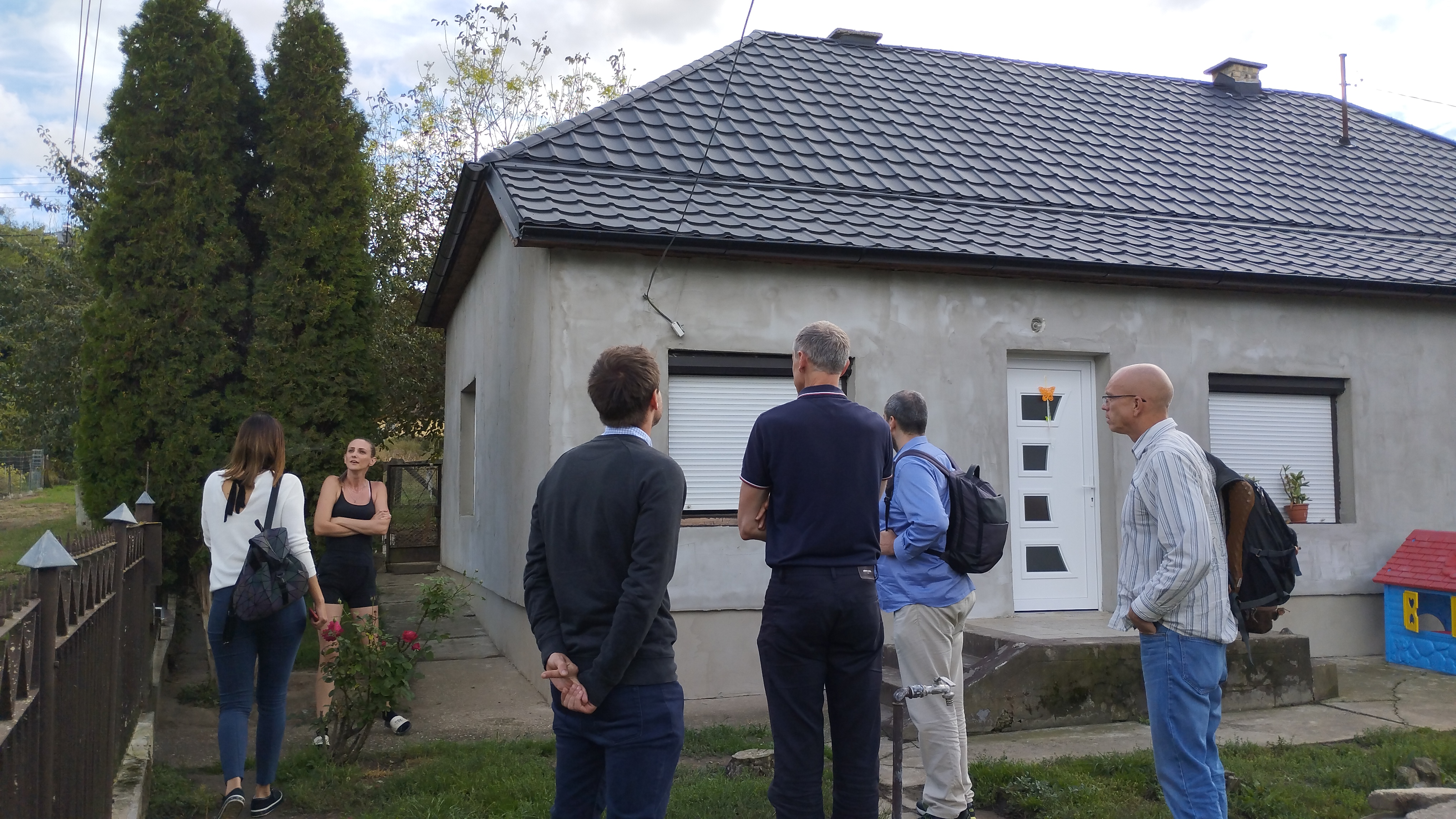
Related Green Deal Priorities
Related localities
Related events
Related Resources


CONTACT
For further details please contact co-leads Professor Chris Foulds (chris.foulds@aru.ac.uk) and Professor Rosie Robison (rosie.robison@aru.ac.uk).

This project has received funding from the European Union’s Horizon 2020 research and innovation program under grant agreement No 101036640. The sole responsibility for the content of this website lies with the SHARED GREEN DEAL HAS project and does not necessarily reflect the opinion of the European Union.
